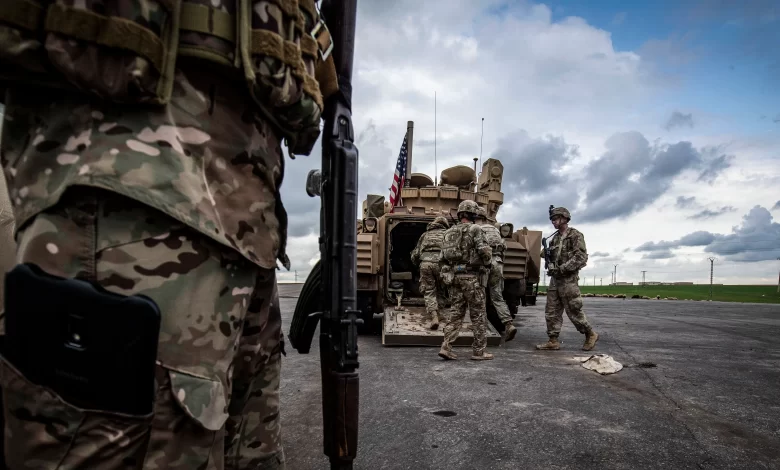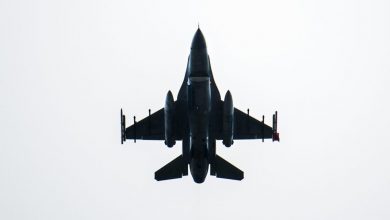Analysis: Biden’s national emergency pursuit in relation to Syria

US activities in Syria with terrorist organization PKK’s extensions pose extraordinary threat to Türkiye’s national security.
The Biden administration declared the extension of the national emergency over the situation in relation to Syria earlier this month. The national emergency pursuit aims to deal with the unusual and extraordinary threat to the national security and foreign policy of the US constituted by the situation in relation to Syria.
Although it is quite normal that the US deals with extraordinary threats all over the world with such kinds of emergency pursuits, what is very hard to understand is that the US administration clearly targets Türkiye’s fight against terrorism by saying that “as actions by the Government of Turkey to conduct a military offensive into northeast Syria undermines the campaign to defeat the Islamic State of Iraq and Syria, or ISIS, endangers civilians, and further threatens to undermine the peace, security, and stability in the region, and continues to pose an unusual and extraordinary threat to the national security and foreign policy of the United States.”
Türkiye’s fight against terrorism
For the last 40 years, the US has clearly stressed many times that they do support Türkiye’s fight against terrorism but that support never produced a fruitful result on the ground. The US administrations have blockaded the selling to Türkiye of not only air defense systems but also drone systems and assault helicopters to fight against terrorism for at least the last 30 years.
The last two bloody terror attacks in Istanbul’s Istiklal Street and in central Ankara stemmed from the Syrian terror camps of YPG, which is a clear offshoot of the PKK terror group. Although the US claims these are two different groups, there are many confessions from the US Senate, Pentagon officials, and different organizations that the YPG is the Syrian offshoot of the PKK terror organization. In the last seven years, Türkiye has conducted several mid-scale operations in Syria to fight against terrorism. These terror groups are not only limited to the YPG but also include Daesh/ISIS. The Turkish Armed Forces is the only conventional armed forces in the world; NATO and the anti-Daesh coalition fought with Daesh and neutralized more than 3,000 Daesh terrorists in Syria. Türkiye’s operations along the border and the strongholds of Daesh and YPG targeted therein have clearly shown that terror organizations have nested along the Turkish border with complex weapon systems and ammunition provided by the US. The infiltrations to Türkiye have been mostly done from those points and the US-provided arsenal has been used for terror attacks many times. Turkish officials shared all these terror activities, depots, and training fields not only with US officials but also with all over the world.
How does Türkiye’s fight undermine the campaign to defeat Daesh/ISIS, endanger civilians, and threaten peace, security, and stability in the region, and continue to pose an unusual and extraordinary threat to the national security and foreign policy of the US? Is there any evidence validating those while Türkiye is the only country that fights Daesh/ISIS on the ground?
Turkish National Defense Minister Yasar Guler expressed Ankara’s readiness to collaborate with the US against Daesh/ISIS continuously last week, but so far the US has not collaborated with Türkiye on that issue and rather kept supporting the terrorist organization YPG. Did the US project of fighting a terror group with another violent terror group bring peace and stability to the region? When one looks at the clashes of Arab tribes and YPG, it is easy to say “no.” How many local Arab habitants of Manbij and Tal Rifat still live as internally displaced people inside Syria due to the YPG suppression is very well known by UN officials and non-governmental organizations. More than 25,000 Kurds are living as refugees both in Iraq and in Türkiye due to the systematic terror of SDF and identities of all refugees are recorded by these two countries.
In short, US policies over Syria have never brought peace and stability to the region. How an allied country poses a threat to US national security and to its foreign policy is still a question that is hard to answer. Türkiye carried out all its responsibilities both during the Cold War and after the Cold War as a NATO ally and lost more than 900 soldiers in the Korean War while it was not even a NATO member.
Türkiye opened all its bases during the Cold War and still lets the US operate some of its bases in the country such as Incirlik Air Base. Türkiye was the first country that acted together with the US to fight against terror after the 9/11 attack. Türkiye reiterated several times its readiness to conduct any kind of operation against Daesh/ISIS with the US. Maybe the question for the US should be: “How does Türkiye pose an extraordinary threat to the US foreign policy and what is the US foreign policy in Syria?”
Agreements between US, Türkiye
Türkiye’s anti-terror operations are mostly limited to terror groups within 32 kilometers (20 miles) of its border to prevent infiltrations. It was also accepted by the US administration in 2019 during Türkiye’s cross-border anti-terror push Operation Peace Spring. Then US Vice President Mike Pence and Turkish President Recep Tayyip Erdogan reached a deal to suspend Ankara’s operation in northern Syria within the next five days to allow YPG terror groups to withdraw from a designated area along the border. But so far it is clear that neither Russia nor the US have kept their promises about the demarcation line of the so-called safe zone. Turkish Foreign Minister Hakan Fidan has called on the US to honor its above-mentioned promises which were made in 2019.
When we take all these into consideration, it is obvious that US activities in Syria with the terrorist organization PKK’s extensions pose an extraordinary threat to Türkiye’s national security and as of Oct. 17, Türkiye extended the mandate for its military operations in Syria and Iraq for two more years, which is a clear response to the US extension of national emergency.
Source: AA / Yusuf Alabarda





